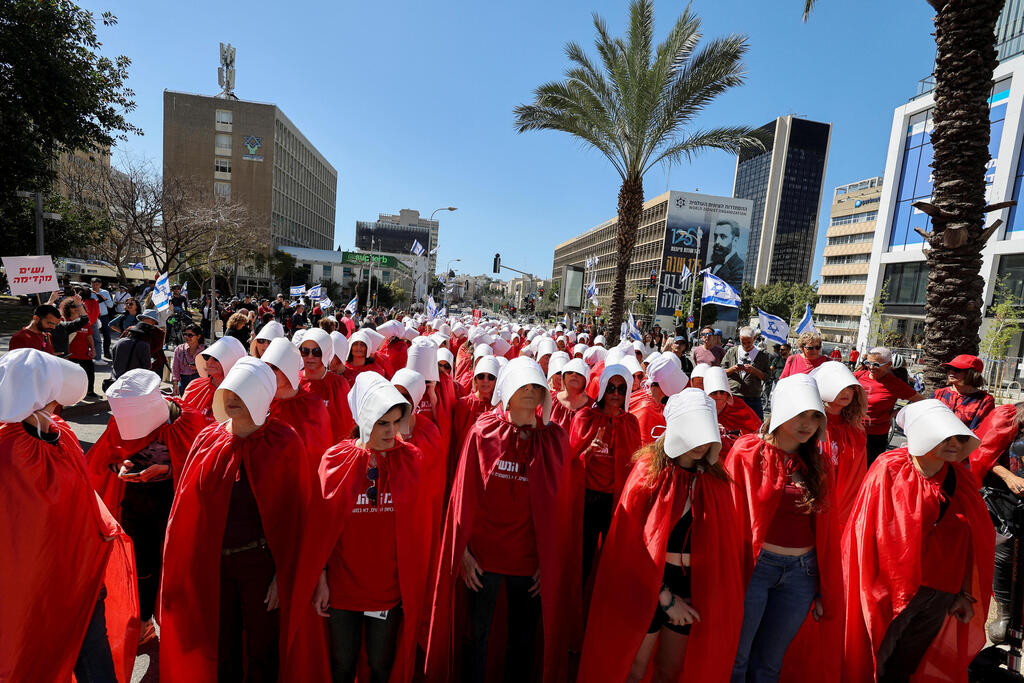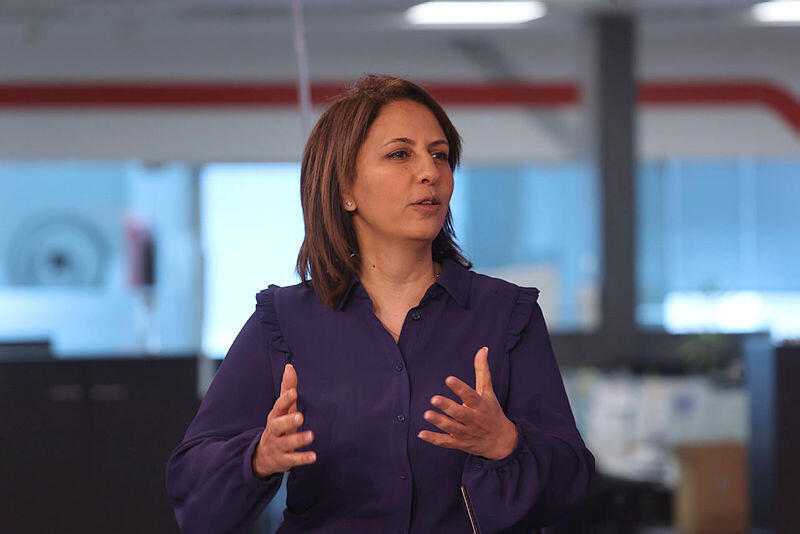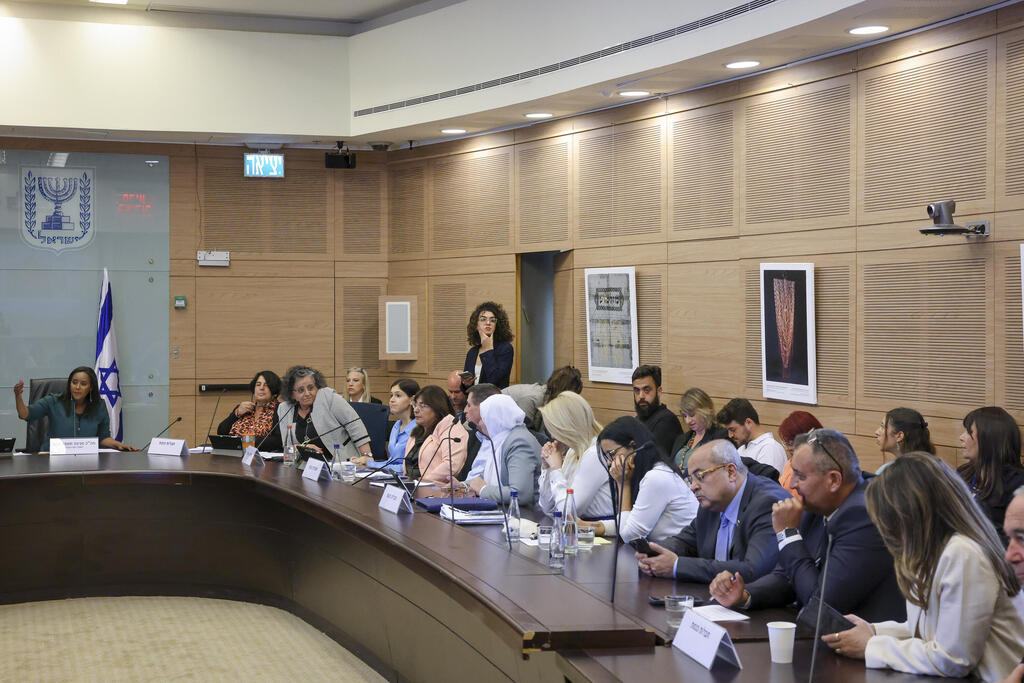Getting your Trinity Audio player ready...
Despite being established over three months ago, the Ministerial Committee for the Advancement of the Status of Women has failed to convene. Startlingly, Israel ranks dead last among OECD countries in terms of gender equality, as highlighted in the Social Institute and Gender Index report. Projections from the Van Leer Institute suggest little improvement in Israel's gender inequality in the foreseeable future.
Israel, alongside Japan, receives a concerning rating in the report for its pronounced gender equality gaps, particularly in the realms of family-based discrimination and curtailment of civil liberties. Israel's score of 40.9 in family discrimination starkly contrasts with the OECD average of 14.2. Despite escalating incidents of violence and femicides, reaching a devastating count of 17 victims, the ministerial committee responsible for advancing women's rights remains inactive and has failed to convene.
"We are already seeing the consequences on the ground," warns Tal Hochman, director of government relations at the women's lobby. "When the cabinet is not convened to promote women's status, there is a deterioration in women's rights in Israel. This is just one part of many actions that the government has not taken since its establishment, which proves that women's rights and gender equality are not among its priorities."
According to Hochman, "The role of the cabinet is to include all government ministries in handling the promotion of gender equality and to make sure that there is a reference to the advancement of women in government decisions. When that doesn't happen, the damage is evident on the ground. It starts with the government's dealing with the problem of violence against women, which it has exacerbated compared to previous years. Although the legislation passed the Knesset, the government does not implement Amendment 18 to MK Aida Touma Sliman's domestic violence law, which states that a judge can order treatment for violent men," she said.
"This continues in the employment market and in wage gaps - the last amendment that was passed and entered into force in June 2022 lacks explicit instructions and obligations that should apply to large employers. And not only are they not trying to promote women's rights, they are trying to set us back.
The representation of women in senior positions in government ministries is at an unprecedented low, and it doesn't seem that this bothers Prime Minister Benjamin Netanyahu at all," she said.
" We call on him to order the convening of the Cabinet as soon as possible. Along with the professional importance, there is an important statement here for every woman in Israel who wants to know that her Prime Minister also sees her and her rights."
3 View gallery


A women's homage to Handmaid's tale, decrying government ineptitude on women's issues
(Photo: Reuters)
Beyond the drastic drop in the number of female ministers in the government, the situation in the Knesset itself is also alarming: only 29 members of the Knesset are women, compared to 91 male members. In the local authorities, the situation is even worse, with 241 male heads of local authorities compared to only 15 female heads. In management positions in the public sector, 62% are men compared to 38% women. Although there has been a significant improvement in the past decade, with the proportion of women in these positions increasing from 7% to 38%, there is still a long way to go.
"The current Israeli government is undoubtedly the worst government for women, as it seems more focused on political agendas than addressing the pressing issues affecting women's lives," expressed Moran Zer Katzenstein, the founder of Building an Alternative, a women's rights organization. "We have waited for seven months for them to take action, but they seem more interested in pushing controversial laws rather than addressing the increasing violence against women.
"The Ministry of Welfare has even warned about the shortage of shelter beds. It is disheartening to see that despite recent reports ranking Israel as the top country in gender inequality among OECD nations, the government is prioritizing the disbandment of committees and the appointment of conservative judges over promoting gender equality."
Hagit Pe'er, Chairman of Israel's largest women's rights organization Na'amat, further emphasized, "The government's disregard for women's issues, gender equality, and the alarming rates of violence against women is evident in their failure to prioritize these matters. The absence of any meetings held by the ministerial committee for gender equality is a testament to their lack of concern.
The statistics are undeniable - female representation in the government has declined, with very few female CEOs in government ministries. Moreover, Israel's position as the country with the highest discrimination against women, according to OECD data, is deeply concerning. It is evident that we are regressing rapidly, and urgent action is needed to reverse this troubling trend."
Yesterday, former Minister for Social Equality, Yesh Atid's Meirav Cohen, urgently requested the Chairman of the Ministerial Committee for Gender Equality, MK Gila Gamliel, and the Minister for the Advancement of the Status of Women, May Golan, to convene the committee.
Cohen emphasized that "the challenges faced by women in Israel encompass various aspects of life, ranging from gender equality in the workplace and closing wage gaps, to addressing cases of domestic violence and sexual harassment. It is of grave importance to broaden cooperation among all ministries and highlight the need for a committee that formulates comprehensive plans and policies to address these issues, as they directly impact the daily lives of every woman."



